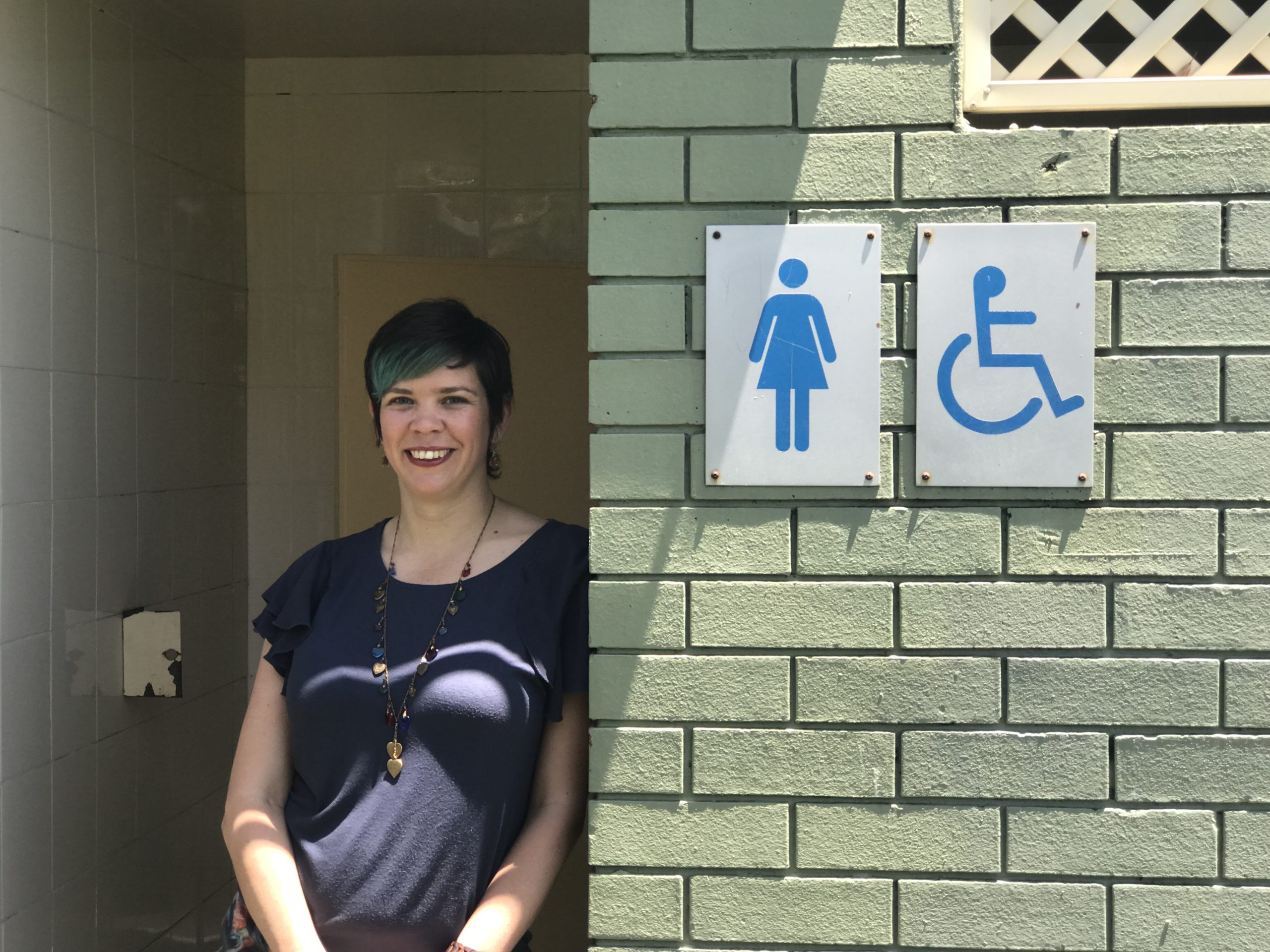World Toilet Day is a United Nations Observance that celebrates our toilets and and raises awareness of the necessity for sustainable, healthy and functioning sanitation systems. To celebrate our humble toilets we spoke with toilet advocate and 2018 Fellow Katherine Webber for a thoughtful discussion on her work in this space.
Why Toilets? What inspired you to get into this kind of work?
I have always been passionate about supporting inclusion and participation in my work as a planner and in community development. It was through many informal conversations over several years that I realised there was a recurring theme of not being able to find, access or use a public toilet and these were impacting how people were participating in community activities, including education and work. Once I started specifically talking to people about toilets and doing more research I was flushed with excitement (pun intended) and I have been ever since. Everyone has an embarrassing or entertaining story about the time when there was trouble in finding a toilet – but when it prevents people from participating – due to (poor design, disability, maintenance, lack of money)… this needs to be addressed.
Can you put into perspective the value and influence of our public toilets?
Did you know that November 19 is World Toilet Day? Toilets are so important that the United Nations has identified a day every year to celebrate toilets and raise awareness of the 4.2 billion people globally living without access to safe sanitation. This year the theme is sustainable sanitation and climate change.
In Australia, we do have communities and individuals that are lacking access to safe sanitation. Yet, toilets are essential to supporting public and individual health, economic development and tourism outcomes. Everyone who exercises in public, goes on long drives or uses public transport knows the importance of toilets, especially when you can’t find one. This need becomes greater if you have a physical, intellectual or invisible disability, are a carer, a person who menstruates or is pregnant, trans or gender diverse, or unhoused. There are many sections of our communities which have differing toilet needs that all need to be addressed safely.
You visited Canada, US, Germany, Netherlands, UK as a part of your Fellowship, can you tell us about your most memorable toilet during your Fellowship?
I saw so many toilets and had so many wonderful conversations as part of my Fellowship it is difficult to highlight just one toilet. In London I joined Rachel on the walking Loo Tour where I got to see the evolution of public toilets in London. For those Fellows who will be travelling to the UK in the future, I highly recommend it! I also visited Crossness Pumping Station which was built to support the first city-wide sewer network, which led to the end of cholera in London. In Portland, Oregon I met with passionate community organisers at PHLUSH, as well saw the manufacturing of the Portland Loo. I can go on … you can see some of the many photos (and toilets) on Instagram here.
What are you working toward now?
My interest in toilets in my side hustle. While it intersects with elements of my paid work, my involvement ebbs and flows. An important element has been building and maintaining networks with fellow toilet enthusiasts around the world.
I have enjoyed participating in the Churchill Trust and University of Queensland Policy Impact Program, where I have been writing more about toilets, this time targeting planners and designers. I think there is an opportunity in Australia to prioritise the planning, design and maintenance of public toilets in public spaces. This will also require defining the responsibility for the planning and provision of public toilets, beyond what current exists.
Thanks Katherine!
You can read more about Katherines work here
